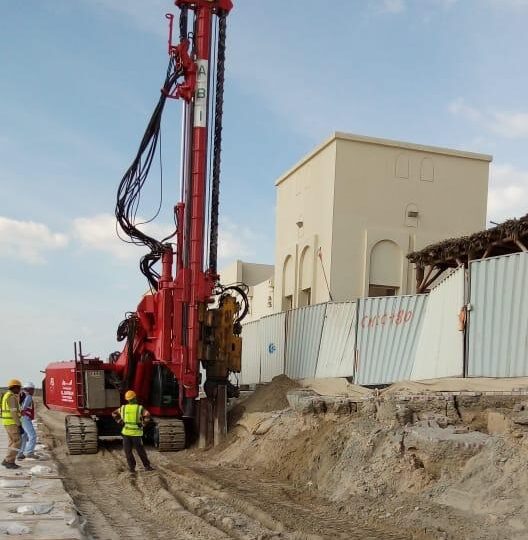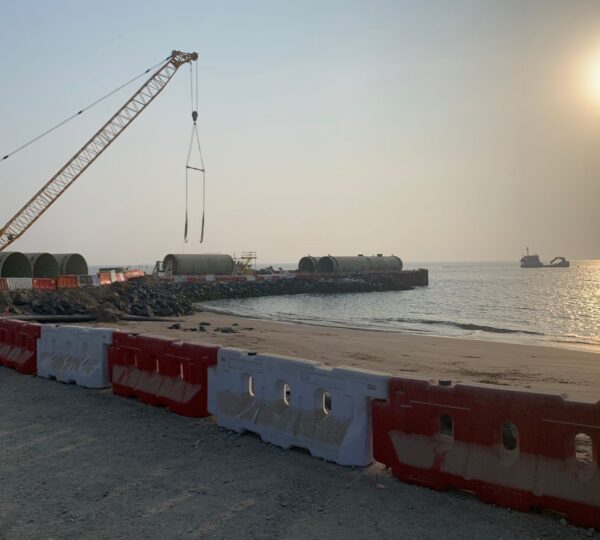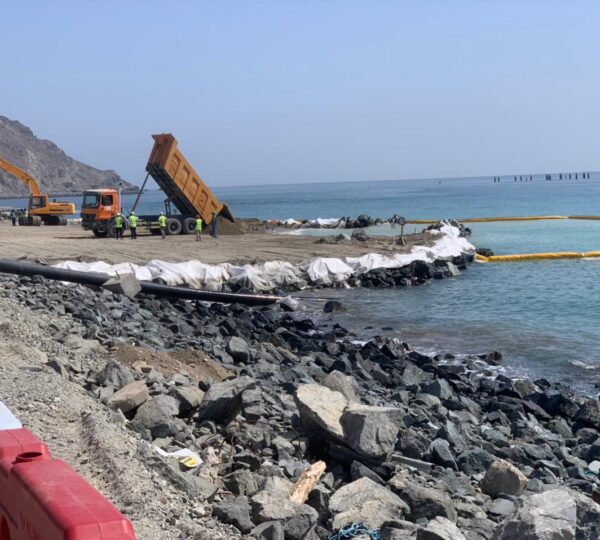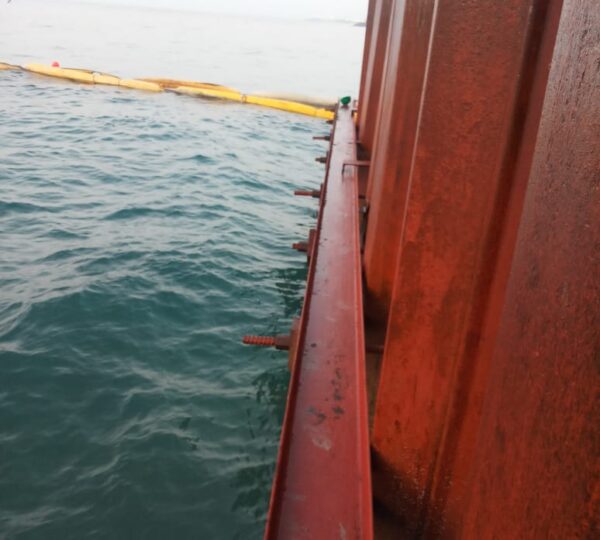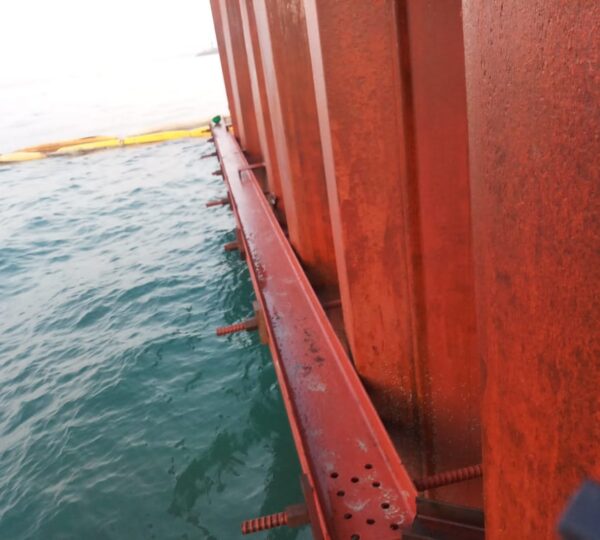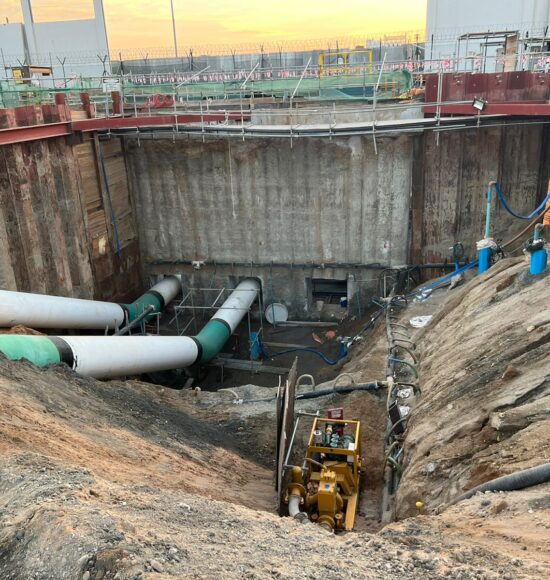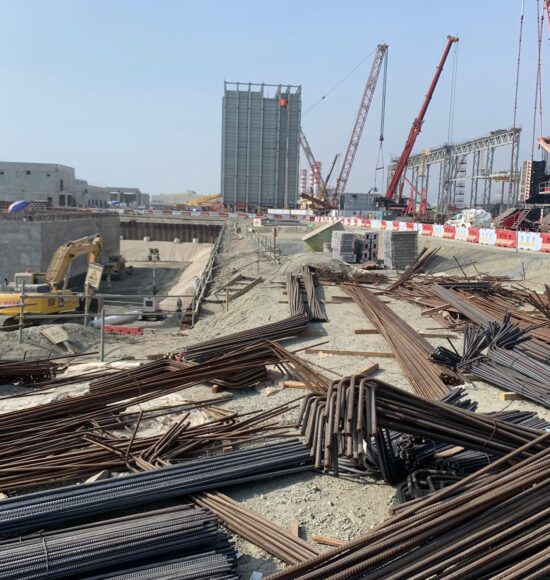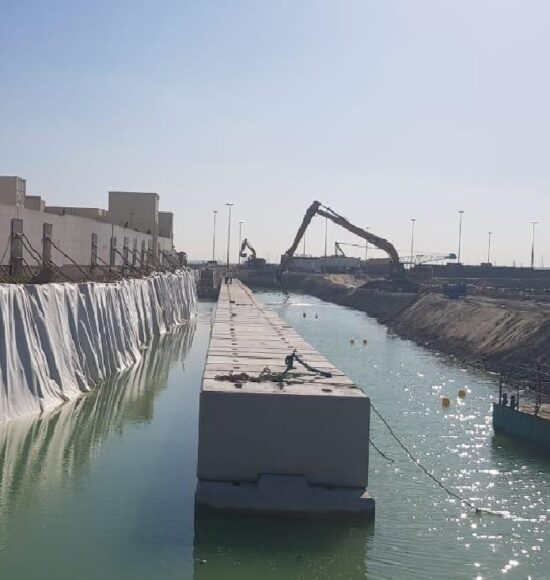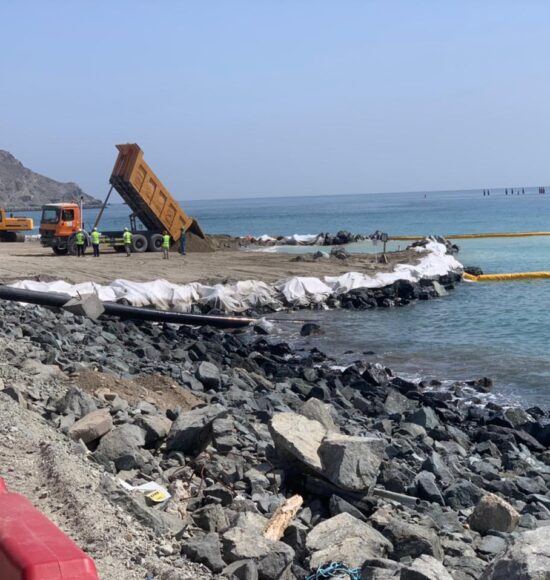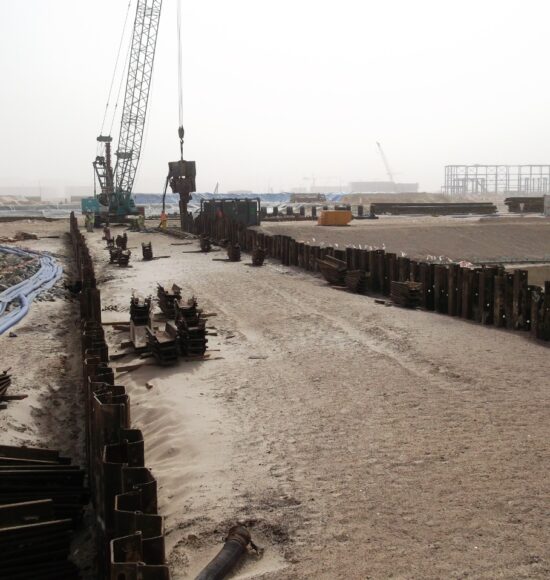Temporary Jetty Construction
( Marine Work)
Scope of Work:
Temporary Jetty Construction:
- Site Survey and Planning: Conducting comprehensive surveys to assess environmental conditions, seabed topography, and logistical requirements for jetty construction.
- Design and Engineering: Developing detailed plans and engineering solutions for the temporary jetty, ensuring structural integrity and compliance with regulatory standards.
- Piling and Foundation: Driving piles into the seabed to create a stable foundation for the jetty structure, considering factors such as water depth and soil composition.
- Superstructure Construction: Erecting the framework and decking of the jetty, utilizing durable materials suitable for marine environments and accommodating the anticipated load requirements.
- Installation of Utilities: Incorporating necessary utilities such as lighting, power outlets, and safety equipment to support operational activities and ensure user safety.
- Access Facilities: Providing safe and efficient access to the jetty, including gangways, ladders, and handrails, to facilitate personnel and material transfer.
Marine Works Management:
- Environmental Compliance: Adhering to environmental regulations and best practices to minimize ecological impact during construction activities, including sediment control and marine life protection measures.
- Safety Protocols: Implementing stringent safety protocols to safeguard workers, equipment, and the marine environment from potential hazards, such as drowning, falling objects, or maritime accidents.
- Logistics Planning: Coordinating with project stakeholders to optimize logistical operations, including material deliveries, equipment mobilization, and waste management, to ensure smooth project execution.
- Quality Assurance: Conducting regular inspections and quality control checks to verify compliance with design specifications, construction standards, and client requirements, ensuring the integrity and reliability of the completed jetty structure.
Project Management: Effective project management practices will be employed to oversee all aspects of jetty construction, including planning, scheduling, budgeting, procurement, and risk management. Clear communication channels and coordination among project teams will be maintained to address any challenges promptly and ensure project milestones are met within the specified timeframe and budget constraints.
Conclusion: The construction of the temporary jetty for the Water and Power Production Plants project in Fujairah, UAE, is a critical component in facilitating the logistical operations necessary for the successful execution of the overall project. Through meticulous planning, expert engineering, and adherence to the highest standards of safety and quality, JAN DE NUL aims to deliver a reliable and durable jetty structure that meets the client’s requirements and contributes to the efficient and timely completion of the project.


